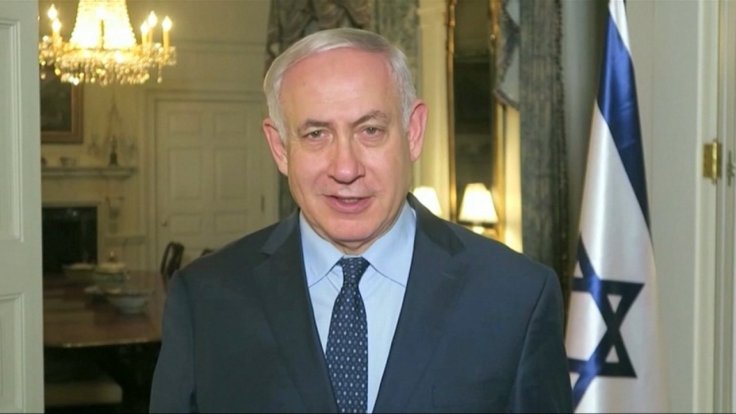Israeli police announced on Sunday the arrest of three individuals linked to the landing of two flares near Prime Minister Benjamin Netanyahu's residence in Caesarea on Saturday evening. Authorities described the event as a "serious incident." Although Netanyahu was not at home during the incident, it has stirred significant political reactions and public concern.

Swift Action by Authorities
Police issued a statement confirming the arrests, explaining that the suspects would face joint interrogation by the Shin Bet internal security agency. A court-imposed gag order prohibits the publication of details about the investigation or the suspects' identities for the next 30 days.
Shin Bet, Israel's internal security service, classified the event as severe. Shin Bet chief Ronen Bar emphasized the gravity of the situation, stating, "We will not accept any violent activity against the symbols of the state. Each case will be treated with the utmost severity."
Political Accusations and Reactions
The flare incident has ignited a wave of political commentary. Amir Ohana, the Speaker of Parliament, linked the attack to anti-government protesters who have been demonstrating against Netanyahu's administration since early 2023. "The writing was on the walls, on the streets, in incendiary messages and in demonstrations," he said, pointing to what he considers an atmosphere of hostility fostered by the protests.
Former war cabinet member and opposition figure Benny Gantz expressed concern on social media platform X (formerly Twitter). He stated, "If the suspicions are true and activists are behind the firing of flares at the premier's residence, it should be said clearly: this is not protest, this is terrorism."
Deputy Prime Minister and Justice Minister Yariv Levin accused the perpetrators of attempting to destabilize Israel. "They are seeking to dismantle the country from within," he asserted, underscoring his belief in the need for stricter measures to curb such activities.
Historical Context of Protests
In the months leading up to the October 7 Hamas attack, Israel was rocked by mass protests opposing judicial reforms introduced by Netanyahu's far-right government. Critics argued these reforms posed a significant threat to Israeli democracy. Although these reforms were temporarily suspended following the Gaza conflict, protests against Netanyahu's leadership have persisted. Demonstrators are now also calling for the release of hostages held in Gaza.
Escalating Threats
The flare incident follows a drone attack targeting Netanyahu's Caesarea residence on October 19, claimed by Hezbollah. That attack occurred amid intensified Israeli military actions against Hezbollah in Lebanon, including ground operations. Netanyahu had accused Hezbollah of attempting to assassinate him and his wife.
Presidential Warning
Israeli President Isaac Herzog condemned Saturday's incident, cautioning against the rising tide of violence in the public sphere. "We must prevent further escalation in our society," Herzog stated, urging restraint and unity.
Broader Implications
This recent incident raises questions about the increasing polarization within Israel. Tensions remain high, with anti-government protests persisting alongside public outrage over the ongoing Gaza conflict. Security measures around key government figures are likely to intensify in response to these incidents, as concerns over domestic and external threats grow.
This series of events underscores the fragility of Israel's internal stability amid a complex web of political, social, and military challenges.








